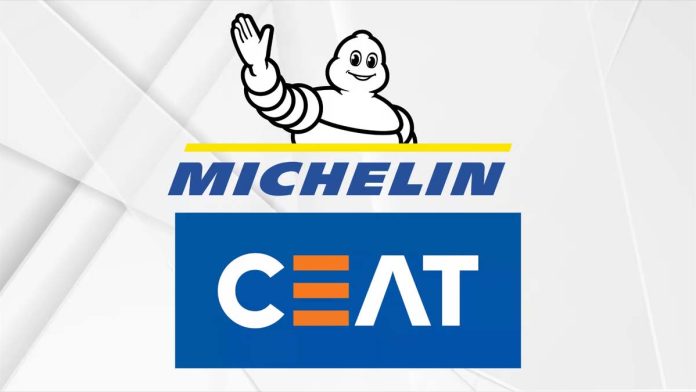MUMBAI, Dec 9: The deal with global tyre maker Michelin to acquire its Camso brand’s off-highway tyres and tracks business will help CEAT focus on a more attractive track segment which is growing faster and has a larger premium play, the company has said.
Tyre maker and RPG Group company CEAT on Friday announced entering into a definitive agreement with Michelin to acquire its Camso brand’s off-highway construction equipment bias tyres and tracks business for about USD 225 million (Rs 1,905 crore).
The acquisition, according to the tyre maker, is significant for its ambition to become a leading global player in the high-margin off-highway tyres (OHT) segment, as it will give the company access to a global customer base, including over 40 international OEMs and premium international OHT distributors, along with Michelin’s two manufacturing facilities in Sri Lanka.
“The track segment is growing faster and (also) has a larger premium play with the customers yet to figure out the right applications of tracks in construction and mining, which means there is a lot of scope for higher penetration in the track segment. So, between the two, tyres and tracks, the latter is more attractive, where CEAT will focus on growth,” CEAT Managing Director and CEO Arnab Banerjee told PTI in an interaction.
Noting that the tyre segment is growing by a compounded annual growth rate (CAGR) of 2 per cent, which a slow growth rate, while the track segment by a CAGR of 6-7 per cent, Banerjee said the tyre segment has a premium play of only about 25 per cent but the track segment has a premium proportion of almost 45 per cent to 50 per cent.
And both the segments are pegged at around USD 1-billion each, according to him.
“So, this is a business that we are acquiring, And more focus will be from CEAT side of the track segment,” he said.
Camso is a premium brand in construction equipment tyres and tracks with strong equity and market position in the EU and North American aftermarket and OE segments, the company said.
The total Camso brand stands at around USD 1.2-billion in turnover, catering to agriculture, construction, material handling and powersports segments, as per CEAT.
The deal, which is subject to regulatory approvals and is expected to be completed by May next year, will expand CEAT’s product portfolio in the high-margin off-highway tyres (OHT) and tracks segments, which includes agriculture tyres and tracks, harvester tyres and tracks, powersports tracks and material handling tyres, the company said.
Following the deal Michelin will exit from the activities related to compact line bias tyres and construction tracks, it stated.
Also, as part of the agreement, Camso brand will be permanently assigned to CEAT across categories after a three-year licensing period.
Over the last decade, CEAT has been focusing on building its OHT business, which now consists of 900-plus product offerings and covers about 84 per cent of the range requirement in the agricultural segment, as per the company.
Stating that Camso is super premium in all the segments it is present in, Banerjee said that in agriculture and harvester tracks, respectively, as much as 80 per cent of the market is premium.
“When the brand comes to us after three years, we can enter all these segments with the Camso brand because Michelin would have migrated these businesses into some other brand in their stable,” Banerjee said.
And, of course, then there is CEAT brand which can also be extended into these segments to serve different categories, value conscious categories, among others, he said adding, “So, we can have a dual band strategy– CEAT playing in the value segment in the tyre category and Camso brand playing in the premium segment in the tracks category.”
“But by itself, the Camso brand offers a very big growth potential,” he added.
Camso is a premium play in the OHT segment at large and its sales realization and gross margin are far higher than what CEAT would have been able to recover through its own brand, he said.
“This deal will get completed only in May, So, initially, there will be a period where we consolidate and margins will be moderate, on average. But once we take control of the whole value chain, the margins will definitely be accrued,” according to him.
He also said that of the two plants in Sri Lanka, the major one, which is in Medigama has a capacity of 200 tons and had about 65-70 per cent capacity utilisation in 2023 and “so there is much headroom to grow,” adding the second plant is in-house part supplier and it actually does not add to the capacity. (PTI)
Trending Now
E-Paper


